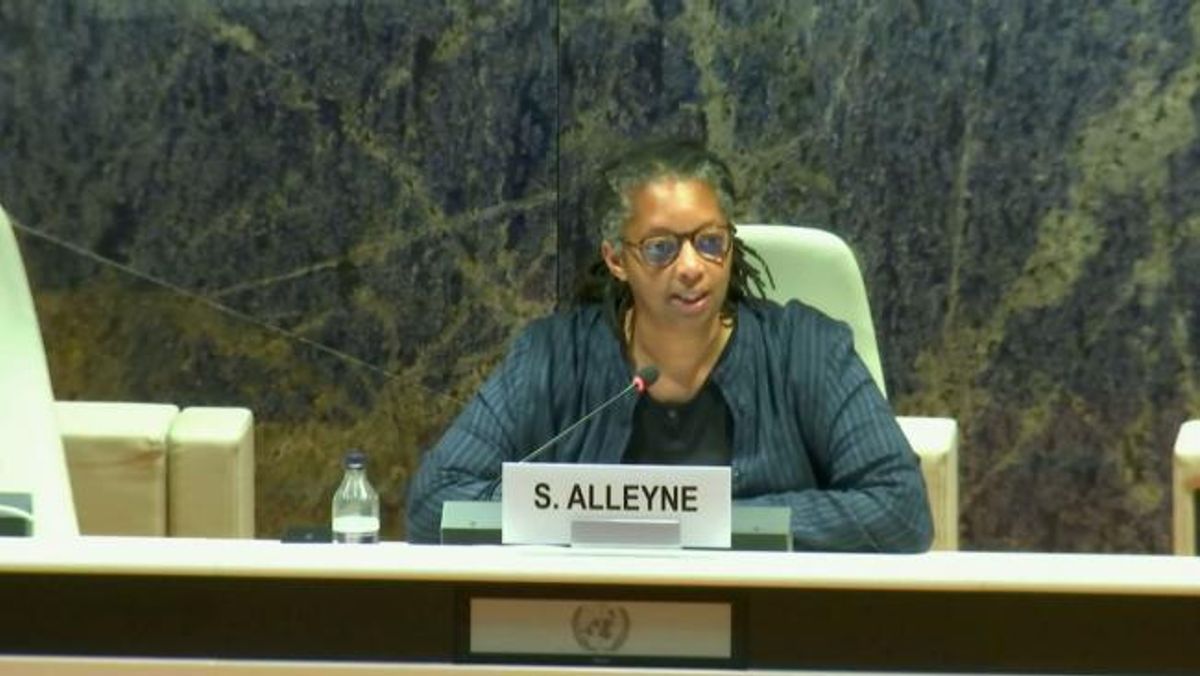Sonita Alleyne, Master of Jesus College at the University Cambridge, UK, said in a speech earlier this week at the United Nations office in Geneva that “the time of Africa bargaining for, begging for and buying back its stolen loot is over”.
Alleyne addressed the 32nd session of the United Nations Working Group of Experts on People of African Descent yesterday (4 May); during her speech she highlighted Jesus College’s decision to return a Benin Bronze in October 2021.
The college was the first UK institution to restitute a Benin bronze to Nigeria, a bronze cockerel, known as Okukor, that had been donated to the college by the father of a student in 1905. “As Master I am proud of the decision taken by the Fellows of Jesus College. I am proud that we pursued direct repatriation of the bronze,” Alleyne said.
The college first announced its decision to restitute the cockerel to Nigeria in November 2019, following campaigning by students and the recommendations of a working group tasked with investigating the college’s historic ties to slavery and colonial violence. The group concluded that “there is no doubt” that the bronze was looted directly from the royal court of Benin—a kingdom later absorbed into Nigeria—during a punitive expedition by British colonial forces in 1897.
“The tone has shifted... [Africa] expects its cultural property to be returned,” Alleyne added in her speech. “In the last 18 months institutions in the UK, such as Aberdeen University and the Horniman Museum have joined with institutions in America and national leadership from France, Belgium and Germany to return single and whole collections of Benin Bronzes. This is real action.”
She said the move towards restitution was in part “because of the agency, scrutiny and determination that more diverse communities and leadership bring to institutions”. A college statement says that Alleyne told UN delegates research was still ongoing into the college’s historical links to slavery and colonial violence (a report will subsequently be published later this year).
Members of the UN Working Group visited Jesus College in January to consider the ongoing impact of African chattel slavery and explore recommendations for reparatory justice. The group will adopt conclusions and recommendations which will feed into a report presented to the 54th session of the United Nations Human Rights Council in September.


